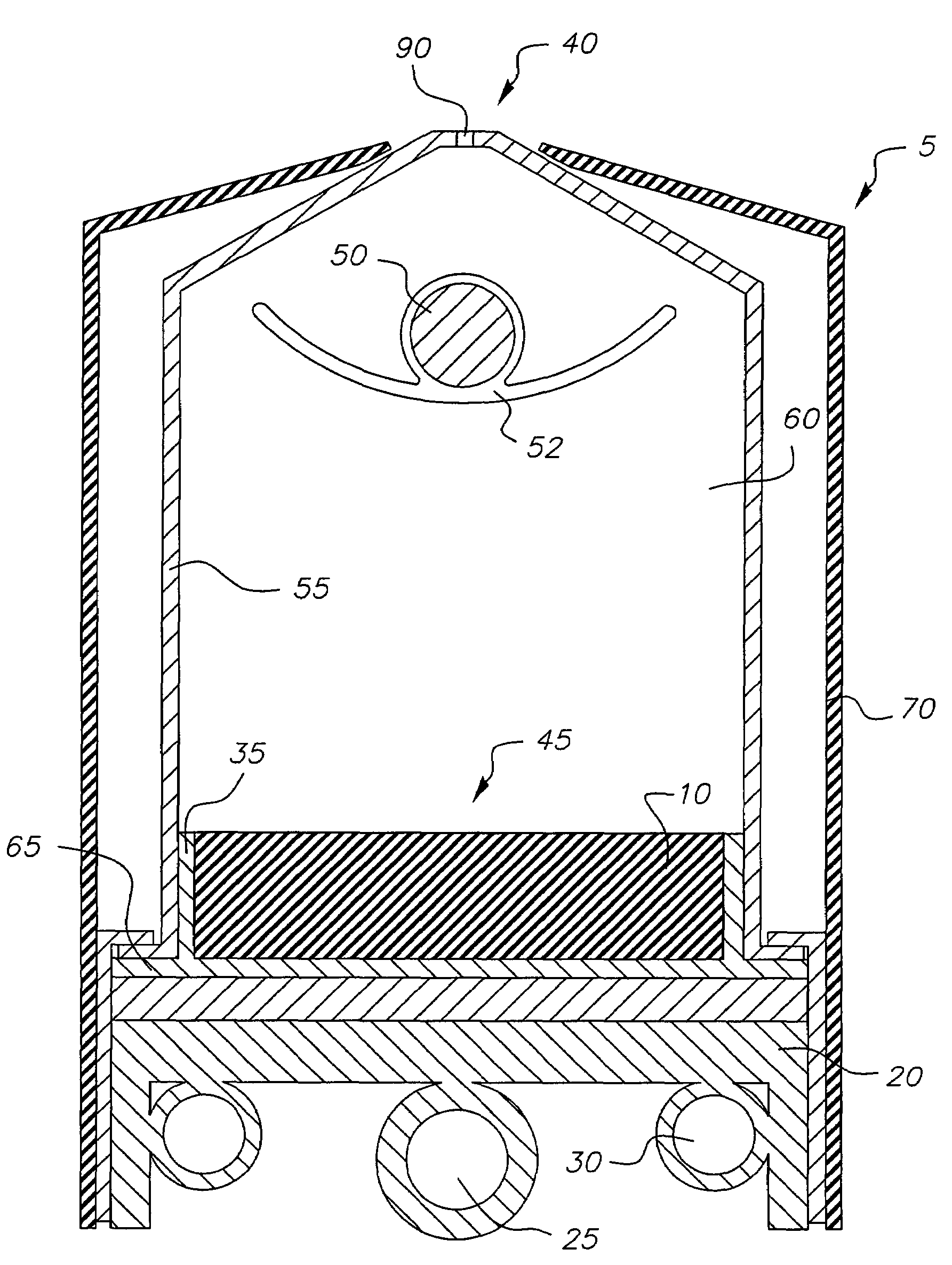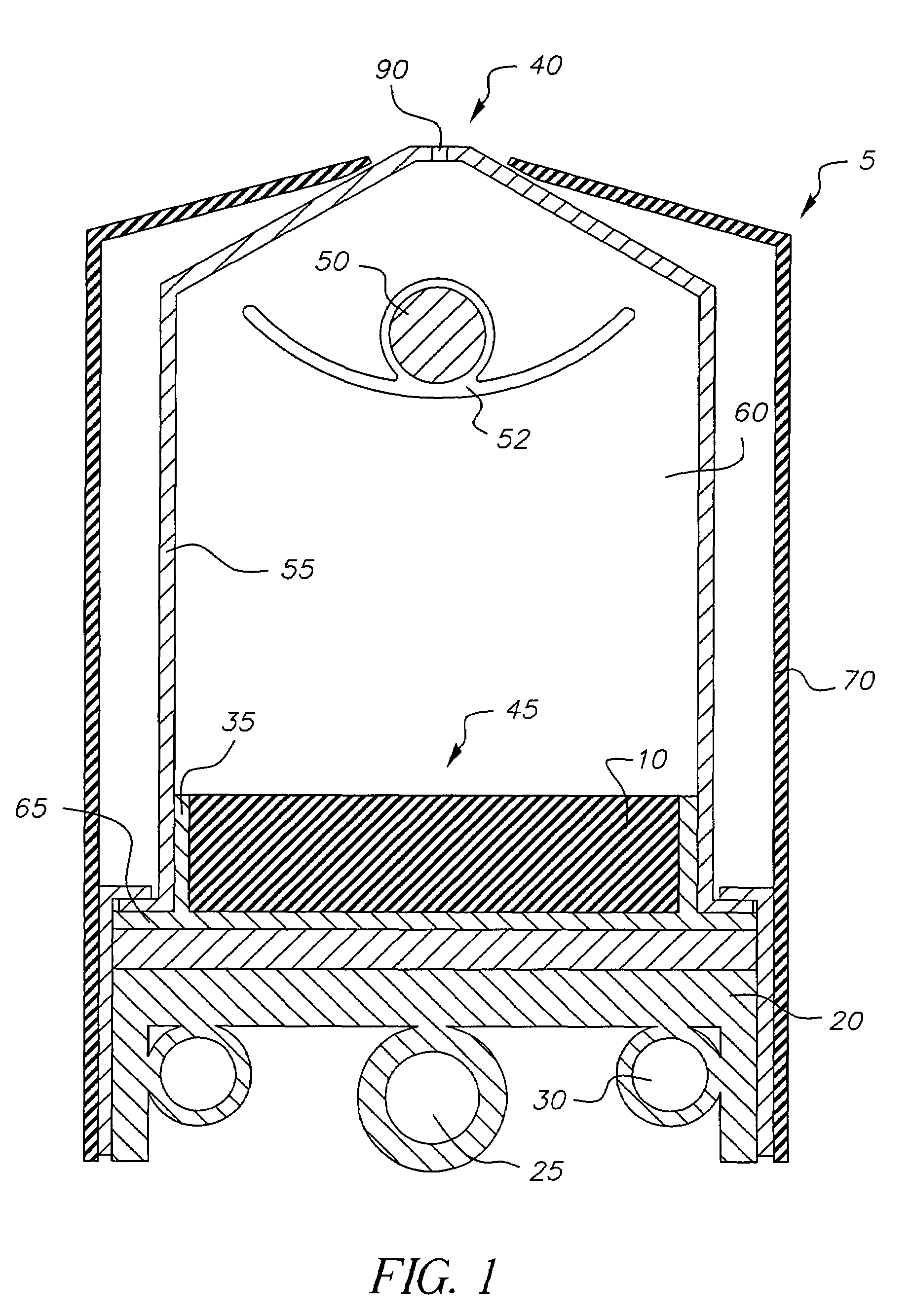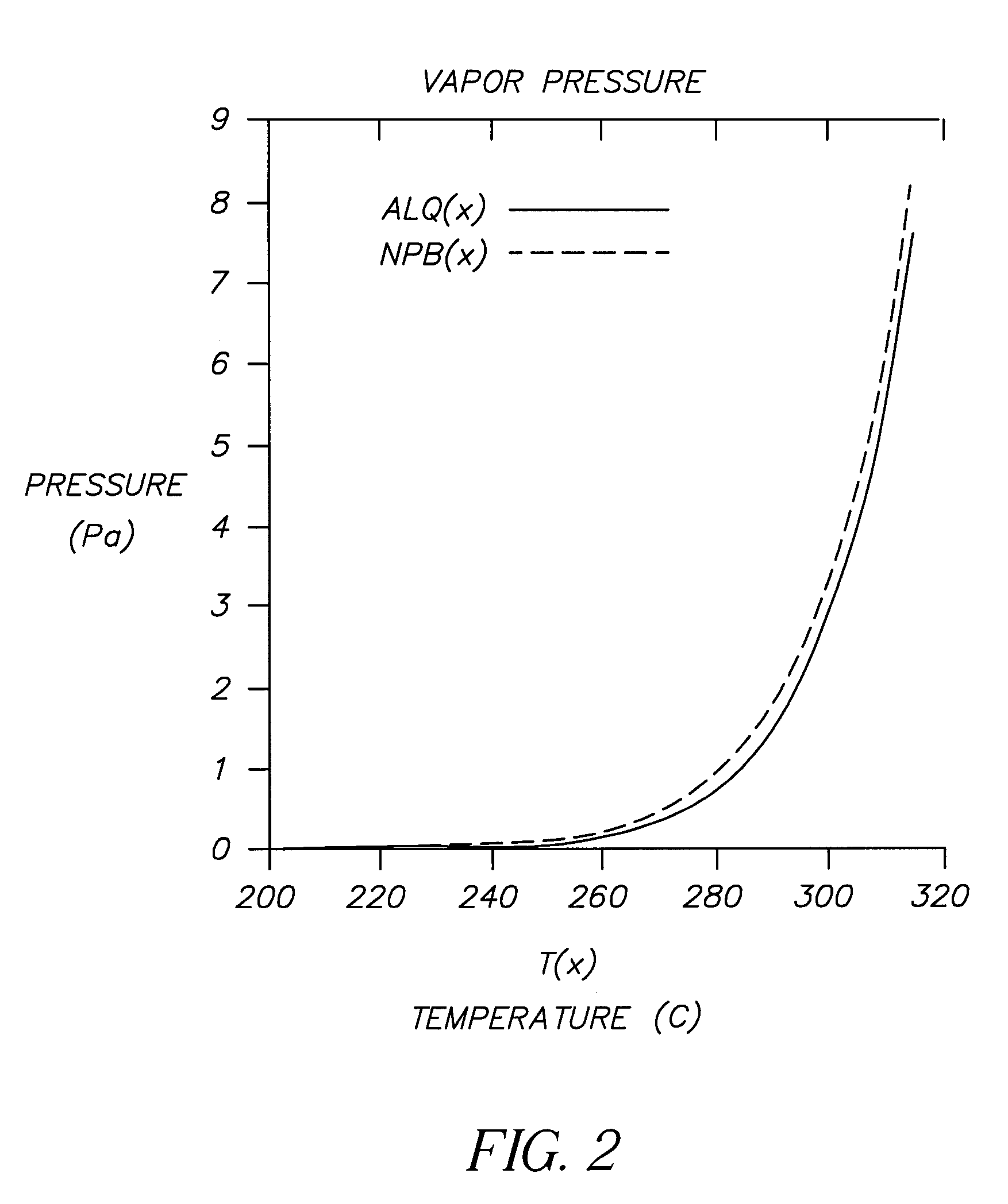Method for coating an organic layer onto a substrate in a vacuum chamber
a vacuum chamber and organic layer technology, applied in vacuum evaporation coating, chemical vapor deposition coating, coatings, etc., can solve the problems of insufficient oled devices, low deposition rate on substrates, increase the intensity of emitted light, etc., to reduce heat radiated toward substrates, reduce material degradation, and increase the deposition uniformity of vaporized organic materials
- Summary
- Abstract
- Description
- Claims
- Application Information
AI Technical Summary
Benefits of technology
Problems solved by technology
Method used
Image
Examples
Embodiment Construction
[0024]Turning now to FIG. 1, there is shown a cross-sectional view of one embodiment of a device according to the present invention. Vapor deposition source 5 is a device for vaporizing organic materials and thereby coating an organic layer onto a substrate surface of an OLED device to form a film. Vapor deposition source 5 includes manifold 60, which is an enclosed volume for containing vaporized organic material. Manifold 60 is bounded by aperture plate 40, side walls 55 and bottom wall 65. Side walls 55 are understood to include any necessary end walls to make manifold 60 completely enclosed. Side walls 55 and bottom wall 65 define chamber 45 for receiving organic material 10. The upper portion of manifold 60 engages the lower portion through a seal area 35. The seal can take the form of a labyrinth seal, a face seal or an O-ring seal. It is not necessary for the seal to initially be gas tight, since, due to the relatively low temperature in the seal area, escaping vapors will qu...
PUM
| Property | Measurement | Unit |
|---|---|---|
| emissivity | aaaaa | aaaaa |
| pressure | aaaaa | aaaaa |
| work function | aaaaa | aaaaa |
Abstract
Description
Claims
Application Information
 Login to View More
Login to View More - R&D
- Intellectual Property
- Life Sciences
- Materials
- Tech Scout
- Unparalleled Data Quality
- Higher Quality Content
- 60% Fewer Hallucinations
Browse by: Latest US Patents, China's latest patents, Technical Efficacy Thesaurus, Application Domain, Technology Topic, Popular Technical Reports.
© 2025 PatSnap. All rights reserved.Legal|Privacy policy|Modern Slavery Act Transparency Statement|Sitemap|About US| Contact US: help@patsnap.com



